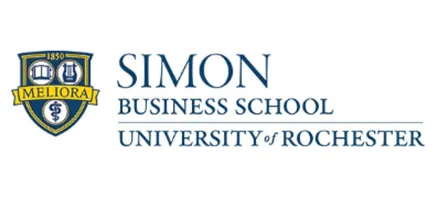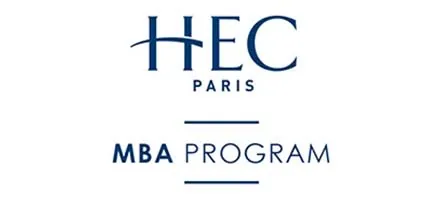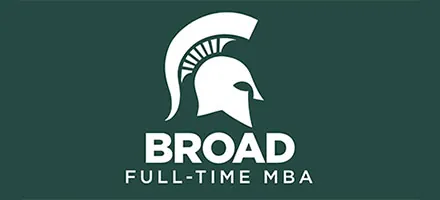
A University of Michigan Ross School of Business student celebrates her graduation 2017, a better year to graduate than 2018 in terms of median base salaries. Ross photo
Median salaries rose slightly in 2018 for MBAs graduating from the University of Michigan Ross School of Business, according to the school’s annual employment report released today (October 24), inching upward to a new record of $125,000 from $123,000 last year. That’s up $5,000 in the last two years; and what’s more, Michigan Ross MBAs report a median sign-on bonus of $30,000, also up $5,000 from last year, and a median “other” compensation — housing stipends, stock options, and the like — of $25,200, up nearly $5,000.
Meanwhile, as salaries have gone up, overall job prospects remain high for those graduating from U.S. News & World Report‘s No. 7 B-school in the country, with 91% receiving offers at graduation and 93.8% receiving offers by three months later. The outlook is slightly less rosy for international students, however, with 87.5% of those students getting their first offer by graduation and 90.4% by three months later.
“This year, Ross students continued to show strong career placement in the job market,” says Heather Byrne, managing director of the Ross Career Development Office. “They are getting the jobs they want at great salaries. Foreign nationals did have a slightly lower offer rate than domestic students and one could attribute this to the recent challenges with H1B visas.”
FOREIGN STUDENTS ARE HIRED LESS BUT MAKE MORE
The Michigan Ross Class of 2018 was comprised of about 31% international students representing about 33 countries. (The number climbed to 34% in the subsequent class before dipping back to 32% in this fall’s cohort.) Last year, foreign nationals at Ross surprisingly had slightly higher rates of job offers across the board than domestic students, despite increasing concerns over the availability of H1B visas for MBA grads: At graduation in spring 2017, 90.6% of U.S. citizens and permanent residents had offers versus 98.1% of internationals. Three months after commencement, the job offer rate for foreign nationals remained unchanged at 98.1% but was still above domestic students at 96.6%. Those roles are now reversed.
The compensation gap between domestic students and internationals was small for the Class of 2017. Foreign nationals pulled down median base salaries of $121,500 versus $125,000 for U.S. citizens, while median bonuses for internationals, at $25,250, actually exceeded the sign-on bonuses of $25,000 for domestic students. (More U.S. grads, however, received signing bonuses, 84.9% compared to 76.1% of the internationals.) A year later, international students may be getting fewer offers but they are making more, having seen a big jump in median base salaries, up to $130,000, while they matched their U.S. counterparts in median sign-on bonus, at $30,000.
Where do they find work? “We had about a third of our international students find jobs outside of the U.S. and most with U.S.-based global companies,” Byrne says, noting that 9% of the entire graduating class found work internationally at a median base salary of $107,000. “Our students are still in high demand and companies are doing what they can to keep the great talent we provide, whether they hire them to stay in the U.S. or go to one of their other locations around the globe.
“We also continue to offer extensive resources and support for our international students. We have a dedicated coach for international students, a two-day orientation before school begins, and multiple workshops on how to be successful with a U.S. job search. We also have a great community of students who support each other in addition to having the support our staff. Ross students are very ambitious and our international students have demonstrated the rigor and drive to navigate the current U.S. culture to be successful with their career search.”
ONE ROSS GRAD MADE $243K TO START
The fact is, even as job prospects overall remain quite high for Michigan Ross grads — with 91% receiving offers at graduation and 93.8% receiving offers by three months later — that’s down from 2017, when 92.9% of Ross MBAs received job offers at graduation, with the percentage increasing to 97.1% three months later. (The overall job offer rate three months after graduation in 2016 was even higher, at 98.4%.) However, two other key metrics are up this year: the number of grads reporting that they got sign-on bonuses, to 90.4% from 82.1%; and the percentage reporting that they received “other” compensation, to 27.2% from 21.6%.
It will be harder to come up with a total compensation number for Ross from future employment reports because of one small but important change: MBACSEA standards for reporting MBA employment data no longer require schools to include “other” compensation — and Ross will be among the schools that decline to report it, Byrne says. The underlying reason, she says, is “varying interpretations of how this number is defined.”
Still, it’s clear the Class of 2018 has beaten its predecessors in most measures — and it did so in one other way as well: the highest reported salary. In 2017, the highest starting salary in the class was $180,000 to an MBA graduate who took a job in an undisclosed industry and function in the New York metro area. This year, the top base salary of any Ross MBA was $243,ooo for one lucky person who went into financial services in the Midwest — though not the Chicago, Detroit, or Minneapolis-St. Paul areas. Peoria, perhaps?
(See next page for data on industry salaries and pay by region.)









